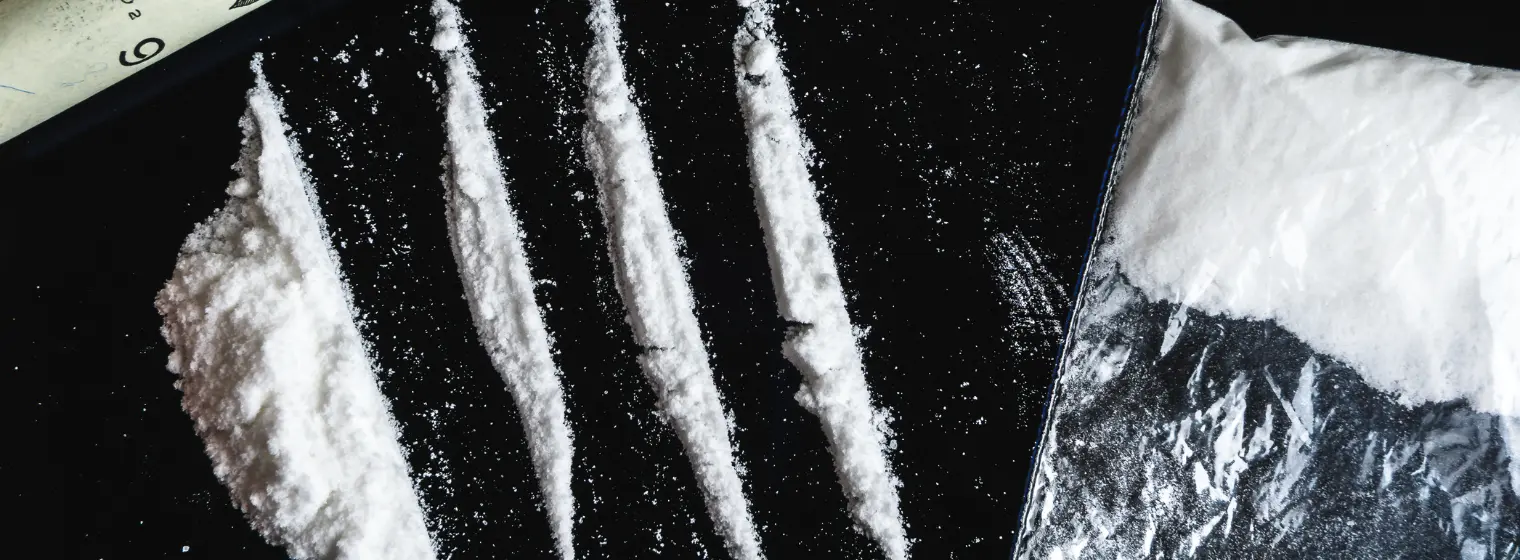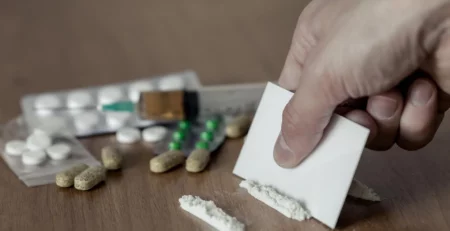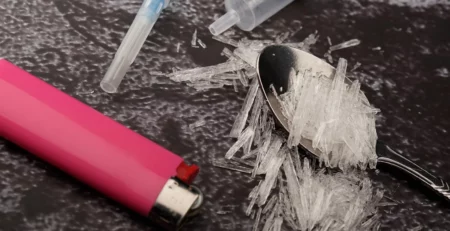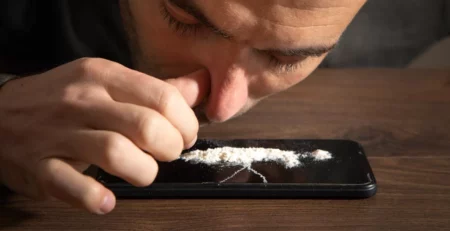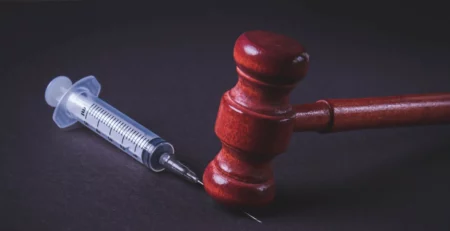How Long Does Cocaine Stay in Your System?
The Duration of Cocaine and Crack in Urine and the Body
Derived from the coca plant, cocaine is a highly addictive drug. Currently, cocaine, or “coke,” is a Schedule II controlled substance due to the potential for substance abuse.
If you’re asking, “How long does cocaine stay in your system?” you may be up against a drug test to detect cocaine. This could be from an employer, the court, or someone else.
All that to say, we understand what a high-stakes situation you’re in and how nerve-wracking it feels to know that you may test positive.
This article will give you an in-depth overview of how long cocaine use will show up on a drug test, including what might make a detection window for cocaine and crack cocaine shorter or longer. We’ll also discuss the risks of using cocaine and how drug addiction treatment can help.
Get Effective Cocaine Detox and Rehab Options at Icarus
How Long Does Cocaine Stay in Your System?
How long does cocaine stay in your system? In the context of drug testing, the short answer is, “it depends.” More than one factor can influence how long a drug test will detect cocaine or crack cocaine after your last time using the drug.
Drug tests look for cocaine metabolites, which are made by the body when you use cocaine.
The main cocaine metabolite used in drug testing is called benzoylecgonine.
Metabolites can be present even when you no longer feel the effects of the drug (when you are not high anymore), so thinking about whether you still feel the effects of cocaine use is not a reliable gauge.
Factors Impacting Cocaine and Crack Detection in Drug Tests

Before we review the anticipated detection windows for cocaine with specific numbers of hours or days, here are some of the main things that might influence how long cocaine metabolites remain detectable via drug testing.
How Much Cocaine You Use
How often you use cocaine (e.g., repeated cocaine use in high amounts vs. if you use a small amount of cocaine once) will impact cocaine detection times via drug tests.
If you engage in long-term or heavy cocaine use, cocaine will remain detectable for longer, and you’ll be more likely to test positive.
Overall Physical Health
Your health status and related factors can make a difference in how quickly your body is able to eliminate cocaine and other drugs. Factors influencing cocaine metabolism in the body include liver function, stomach issues, body size, hydration, and kidney function.
Use of Multiple Substances
Mixing cocaine with other drugs may change how long cocaine can be detected in your system. For example, drinking alcohol with cocaine–or using the powerful stimulant drug after drinking–can result in cocaine staying in your body for longer.
Drug Test Type
The type of drug test you get will change the expected cocaine detection window. Some types of drug tests are more sensitive than their alternatives and can pick up cocaine use for a more extended period.
Get Accredited Treatment Programs at Icarus – Call Now!
Possible Drug Testing Types Used to Detect Cocaine
Here are the most common types of drug tests you’ll come across and an estimate of roughly how long they will detect cocaine in your body.
Note that the following numbers are based on what is common in drug screen data; how long cocaine remains detectable in the test you go through may differ.
Urine Tests and Their Detection Window
Typically, a urine test will show cocaine use for 3-4 days. Urine drug tests are some of the most common types of testing used for cocaine and other drugs because they are non-invasive and easy to administer.
Blood Tests and Their Detection Window
In most cases, a blood test will only show cocaine use for 1-2 days. Blood tests can be considered more invasive than urine tests and are used less often due to both that and the shorter detection window.
Hair Testing and Their Detection Window
Hair tests are more likely to give positive drug test results because they can detect drug use for around 90 days (some say six months). Due to their elevated detection window, hair tests may be used to look for the use of cocaine and other substances.
Oral Fluid (Saliva) Tests and Their Detection Window
Saliva tests have a relatively short detection window for cocaine and other drugs. Cocaine is typically detectable in saliva for 1-36 hours.
The Overall Risks of Using Cocaine

Even beyond a positive drug test, which could result in consequences like job loss, problems at work, and legal issues, cocaine abuse can have severe unfavorable impacts on your life.
Cocaine addiction, misuse, or abuse can start in different ways and is not your fault. However, long-term cocaine use can have serious consequences for your physical, mental, occupational, and financial health, as well as other parts of life.
As a potent and powerful central nervous system stimulant, cocaine affects the entire body. In turn, cocaine users may risk:
- New or heightened mental health issues, including the potential for hallucinations, anxiety, and paranoia.
- Hoarseness, nosebleeds, loss of smell, inflammation, and a runny nose (when snorting cocaine).
- Lung damage and worsened asthma (when smoking cocaine).
- Severe cardiovascular problems, like heart attack or stroke.
- High blood pressure and increased heart rate.
- Gastrointestinal distress or ulcers.
- Infections.
- Bleeding within the brain.
- Restlessness
- Personality and behavior changes.
- Insomnia
Drug overdose is a very serious risk of using cocaine, and the likelihood of a deadly drug overdose involving cocaine or crack cocaine has increased over the years.
When paired with another drug, whether intentionally or unintentionally (e.g., cases where cocaine is laced with fentanyl), the possibility of a fatal overdose is even more likely.
Getting Substance Abuse Treatment in Las Vegas at Icarus

Whether you’re seeking cocaine addiction treatment for yourself or someone you care about, you are not the only one going through this. Help for cocaine abuse is available.
We are here to help you or your loved one stop using cocaine so that the need for fear or avoiding drug testing is no longer present. Treatment can also help individuals avoid the other implications of drug use.
Our Programs (Levels of Care)
Icarus Behavioral Health Nevada has a full continuum of care available to those experiencing drug abuse. We offer sub-acute detox, inpatient rehab, partial hospitalization, intensive outpatient, and outpatient programs.
Detox can help you get off of cocaine successfully and in a medically supervised environment, whereas our other programs provide intensive therapy and address the underlying causes of substance abuse.
Multiple Substance Addiction
Whether you’re facing standalone cocaine addiction, polysubstance use, or a mental health condition, Icarus Behavioral Health Nevada is here to give you individualized treatment that really works.
Polysubstance use refers to the use of multiple drugs; it is not uncommon for people who abuse cocaine to be chronic users of other drugs, too.
Dual-Diagnosis Treatment Programs
Dual-diagnosis programs are available at Icarus Behavioral Health Nevada.
Designed for people experiencing substance addiction and co-occurring trauma, grief, self-harm, or mental disorders, dual-diagnosis treatment programs are linked to better treatment outcomes for people with co-occurring disorders.
Call Icarus Nevada for Proven Cocaine Treatment Options

Icarus Behavioral Health Nevada provides a full continuum of substance use disorder treatment covered by most forms of insurance, including the majority of private insurance plans.
With evidence-based programs, we are here to give you or your loved one the quality of care necessary for long-term success.
To learn more about getting cocaine treatment at Icarus Behavioral Health, please connect with our team by calling our admissions line today.
Up To 100% of Rehab Costs Covered By Insurance – Call Now!
FAQs on Cocaine and Drug Tests
What is a positive test for cocaine?
In the case of urine drug testing, a positive test is determined by cocaine metabolites at or above 150 ng/ml with confirmed presence of benzoylecgonine at 100 ng/ml or higher.
How do police test for cocaine?
Law enforcement might use a variety of different types of drug tests to look for cocaine and other drugs. The type of test used may depend on the circumstances you are under and why the drug test is requested.
How long does it take for a drug to be eliminated from the body?
Different types of drugs can be seen in drug tests for different lengths of time. How efficient your body is in metabolizing the drug you use–which can be impacted, again, by factors like hydration and physical health–will also influence how long it takes for you to be safe from the possibility of getting a positive test result.
How many people use cocaine in the US?
Around 1.8 percent of the US population had used cocaine in the past year in 2023, according to the National Survey on Drug Use and Health (NSDUH) from the Substance Abuse and Mental Health Services Administration.
References
- https://www.dea.gov/sites/default/files/2020-06/Cocaine-2020_1.pdf
- https://pmc.ncbi.nlm.nih.gov/articles/PMC4920965/
- https://www.sciencedirect.com/science/article/abs/pii/S0026265X19318168
- https://nida.nih.gov/research-topics/cocaine#long-term
- https://nida.nih.gov/research-topics/trends-statistics/overdose-death-rates#Fig2
- https://pmc.ncbi.nlm.nih.gov/articles/PMC4371026/
- https://www.samhsa.gov/data/data-we-collect/nsduh-national-survey-drug-use-and-health

